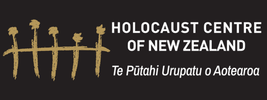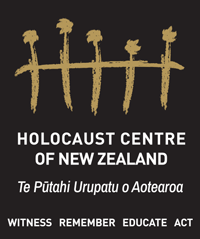|
Marc Daalder
Today, Israel and much of the Jewish world mark Yom HaShoah – Holocaust Remembrance Day. It comes almost three full months after the rest of the world commemorated International Holocaust Remembrance Day. Why the disparate memorials? The international celebration takes places on January 27, the date that the Auschwitz-Birkenau concentration camp was liberated by Soviet troops. Germany began to mark this date in 1996 and the United Nations made it an international holiday in 2008. Yom HaShoah has a longer history. Celebrated first in December 1949, the date – Nisan 27 in the Hebrew calendar – was concretised in 1951 and made a national holiday in Israel by the country’s Parliament in 1959. I posit two reasons for the two separate remembrance days. One has to do with participants. The international holiday is a day for the global community to gather together to commemorate the Holocaust – and their various roles in it, as perpetrators, bystanders, victims, and liberators. Meanwhile, Yom HaShoah is a Jewish holiday, with a Hebrew name, for internal Jewish reflection on the Holocaust. A second reason has to do with the specifics of the dates. As mentioned, International Holocaust Remembrance Day takes place on the date that Auschwitz was liberated. Yom HaShoah, however, takes place directly between the end of the Passover holiday, which celebrates Jewish liberation from Egypt in the biblical era, and Israeli Independence Day. Moreover, it tends to fall on or around the period of the Warsaw Ghetto Uprising, a month-long battle in which less than a thousand Jews faced off against Nazi troops working to deport the last of Warsaw’s Jewish community to the death camps. Warsaw’s pre-war community of 500,000 Jews – the second-largest in the world at the time, trailing only New York City – had shrunk to just over 50,000. The ghetto was burned to the ground by the Nazis during the fighting, killing an estimated 13,000 Jews. The remainder were deported. Nonetheless, the different historical events tell two tales of Jewish agency during the Holocaust. In one, the Jews were mercilessly slaughtered until the Soviets arrived as a proud liberating army. In the other, the Jews took it upon themselves to fight back. Overstating the case for Jewish agency is dangerous – most had no choice but to follow Nazi orders and continually hoped they were being taken to labour camps and not extermination facilities. But Jews also consistently found ways to resist, whether in rebellions like the Warsaw and Treblinka uprisings, in small ways like the frequent sabotage of war materials that Jewish labourers were forced to manufacture, or in deeply personal ways, like committing suicide as an act of defiance against Nazi extermination plans. Yom HaShoah recognizes the many ways in which Jews seized control of their fates during the Holocaust and made what decisions they could, always with an eye towards resistance to the murder of their people. Marc Daalder is a writer and History student co-located in Amherst, Massachusetts and Wellington, New Zealand. Marc has been published in the Financial Times, the Chicago Reader and Jewish Daily Forward. These views are the author’s own and do not necessarily reflect the views of the Holocaust Centre of New Zealand.
0 Comments
Leave a Reply. |


